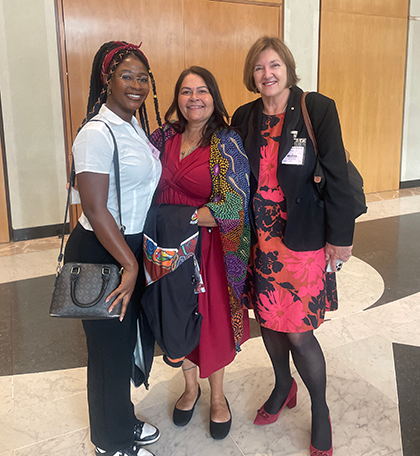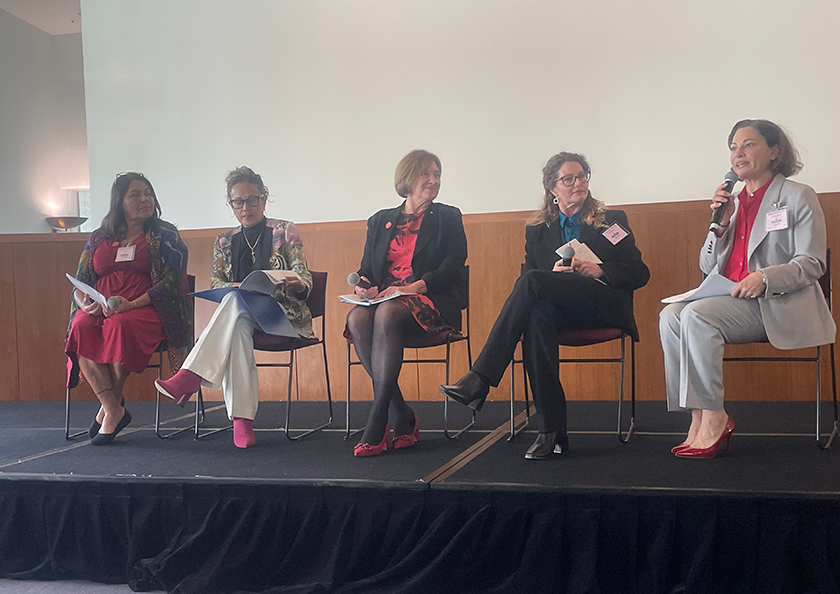Advocates, researchers, and policymakers came together at Parliament House this week to mark the 2025 International FASD Awareness Month, calling for urgent action to address the links between Fetal Alcohol Spectrum Disorder (FASD) and the justice system.
The event was hosted by the Foundation for Alcohol Research and Education (FARE), in collaboration with National Organisation for Fetal Alcohol Spectrum Disorder Australia (NOFASD), the National Aboriginal Community Controlled Health Organisation (NACCHO), and the FASD Hub Australia.
With the support of the Minister for Health and Aged Care, the Hon. Mark Butler MP, who officially opened the event, the gathering attracted a strong presence from across the political landscape, including Senator Kerrynne Liddle, Shadow Minister for Indigenous Australians.
At the heart of the event was a powerful panel discussion featuring Jennifer Rogers, Donella Mills, Professor Elizabeth Elliott, and Tania Wolf, all of whom shared stories, research, and lived experiences that spotlighted the critical gaps in FASD awareness, diagnosis, and support, particularly for those in regional and remote communities.
“Every state and territory needs a public FASD assessment service with clear referral links from justice health to enable early diagnosis and intervention for better outcomes,” said Professor Elliott, the FASD Hub Australia Chair, emphasising the need for systemic reform.
Panellists spoke candidly about the overrepresentation of people with FASD in prisons, the lack of culturally safe and accessible assessment services, and the failure of the justice system to offer therapeutic or diversionary pathways.
The event highlighted that undiagnosed and unsupported FASD can lead to a life trajectory involving repeated justice system contact, something that advocates say can be prevented.
The discussion concluded with a strong call for whole-of-government, cross-sector collaboration, anchored in three key calls to action:
- Sustained investment in FASD awareness, training, early screening, and diagnosis to support prevention and reduce justice system interactions.
- Cross-sector partnerships to deliver culturally safe, coordinated supports for people with FASD, particularly those entering or exiting the justice system.
- New models of supported accommodation to prevent justice system contact and ensure successful reintegration for those leaving custodial settings.
The event at Parliament House served as a timely reminder that FASD remains underdiagnosed and is lacking in resources, and that with coordinated national action, the cycle between FASD and incarceration can be broken.
To read more about FASD and criminal justice by visiting:
- For justice professionals or,
- search ‘FASD and criminal justice’ in our publications database.




